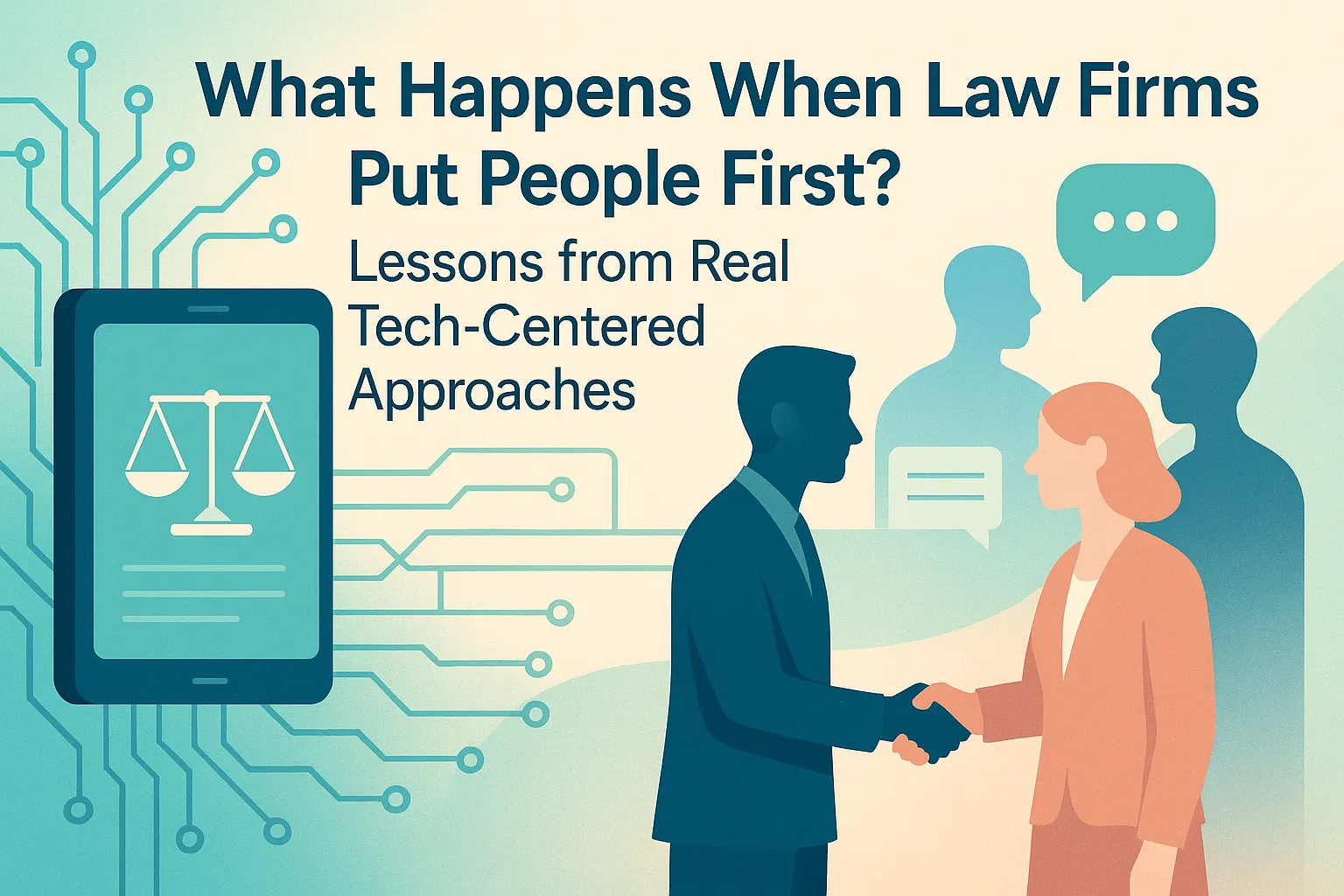What Happens When Law Firms Put People First? Lessons from Real Tech-Centered Approaches

For many years, legal advice has often been seen as distant, transactional, and complex — something reserved for formal settings with little emphasis on client experience or understanding. However, a significant shift is underway. Today, emerging tech-centered legal firms are redefining the practice by prioritizing a people-first approach that focuses on client experience and genuine partnership. This shift is particularly important for startups and growing businesses that require agile, transparent, and collaborative legal support to navigate fast-paced environments and complex challenges effectively.
The Pitfalls of Traditional Legal Models
Traditional legal models often leave clients frustrated due to poor communication, generic advice, and opaque fee structures. Many startups find that the transactional nature of these services limits their ability to grow and stay agile, as lawyers focus on isolated tasks rather than understanding and adapting to ongoing business needs. This one-size-fits-all approach can lead to missed opportunities, such as failing to tailor legal strategies to a startup’s specific market conditions or growth stage, ultimately hindering their potential for success.
Why Client-Centered Design Matters
User-centered design in legal services focuses on creating systems and processes that prioritize the needs and experiences of clients. Implementing UCD principles enhances accessibility, transparency, and overall client satisfaction.
- Human-Centered Case Study: The U.S. Department of Justice's Access DOJ initiative used human-centered design to make services more accessible and efficient, improving user experience across diverse communities. [Digital.gov]
- Legal Tech Usability: A study on an AI system for analyzing U.S. federal court data achieved a System Usability Scale (SUS) score of 72.83, with participants praising its comprehensive search and analytics features. [Springer]
- Transparency Database: The EU’s Digital Services Act Transparency Database requires online platforms to report content moderation decisions, setting a new global standard for accountability. [arXiv]
- Legal Chatbot: India’s LawPal chatbot uses Retrieval-Augmented Generation to deliver accurate, real-time legal information, boosting legal literacy and preventing misinformation. [arXiv]
Transparent Fees & Predictable Pricing
Transparent fees and predictable pricing models are becoming fundamental in redefining legal services for startups. Moving away from traditional billable hours and surprise invoices, many tech-centered legal firms now offer clear, upfront pricing structures. This shift not only fosters trust between legal providers and clients but also provides startups with the budget certainty necessary to manage their limited resources effectively. By adopting predictable pricing, law firms enable startups to focus more on growth and innovation rather than worrying about fluctuating legal costs.
Education & Empowerment
A people-first legal approach goes beyond reactive advice, focusing on proactive education to help clients avoid legal pitfalls before they arise. Leading tech-centered firms offer interactive workshops, regular newsletters on legal trends, and comprehensive digital materials. This commitment to education transforms legal counsel from a transactional service into an ongoing empowerment process, enabling startups to navigate challenges confidently.
Personalized & Evolving Advice
As startups scale, their legal needs evolve — what works during seed funding may not suit a Series B round or international expansion. Law firms that tailor their counsel to each startup’s unique growth stage can provide relevant and effective support. Continuous adaptation of legal strategies ensures compliance, protection, and readiness for new challenges, fostering a dynamic partnership that evolves alongside the startup.
Broader Impact on Innovation
Responsive, people-first legal services foster a culture of partnership within startup ecosystems. By acting as trusted collaborators rather than distant operators, legal advisors accelerate product development and market entry, contributing to shared growth and success. This approach drives the creation of smarter legal tech tools that integrate guidance into everyday business operations, empowering startups to innovate smarter and scale faster.
How to Choose Your People-First Legal Partner
- Communication Practices: Ask about update frequency and preferred channels.
- Pricing Transparency: Ensure clear, upfront fee structures without hidden costs.
- Tech Integration: Look for client portals, real-time messaging, and automation tools.
- Educational Resources: Evaluate workshops, newsletters, and digital materials.
- Ongoing Collaboration: Seek a firm willing to adapt strategies as your startup evolves.
Building a collaborative relationship requires honesty about business goals and challenges, and an agreed rhythm of communication and feedback.
Conclusion
In today’s fast-paced startup environment, people-first, tech-centered legal services offer a compelling alternative to traditional models. By prioritizing transparent fees, personalized advice, proactive education, and intuitive technology, these firms empower startups to navigate legal complexities with confidence and agility. Embracing this approach transforms legal counsel from a cost center into a catalyst for growth, ensuring that law not only safeguards businesses but also propels them toward success.

